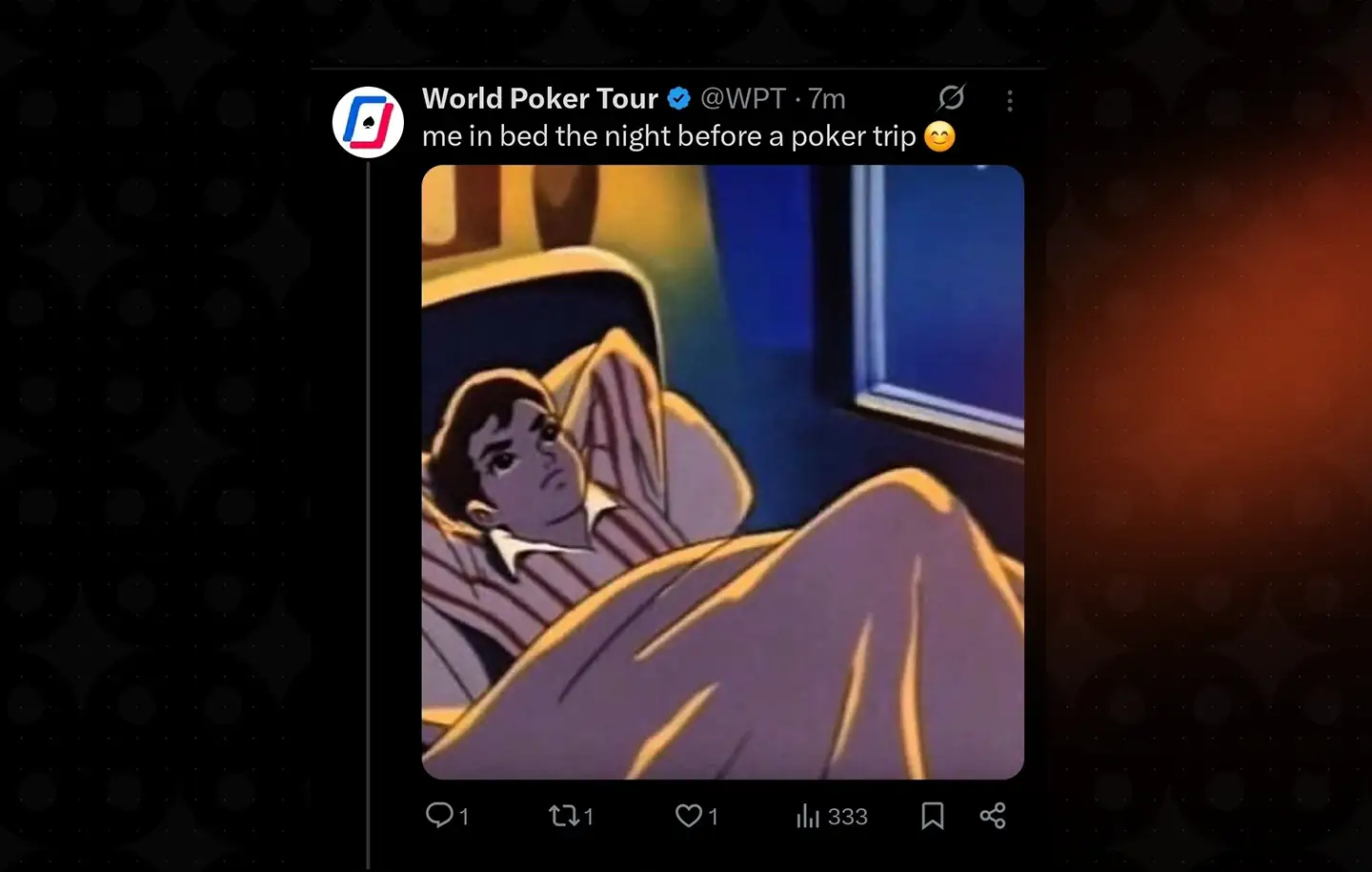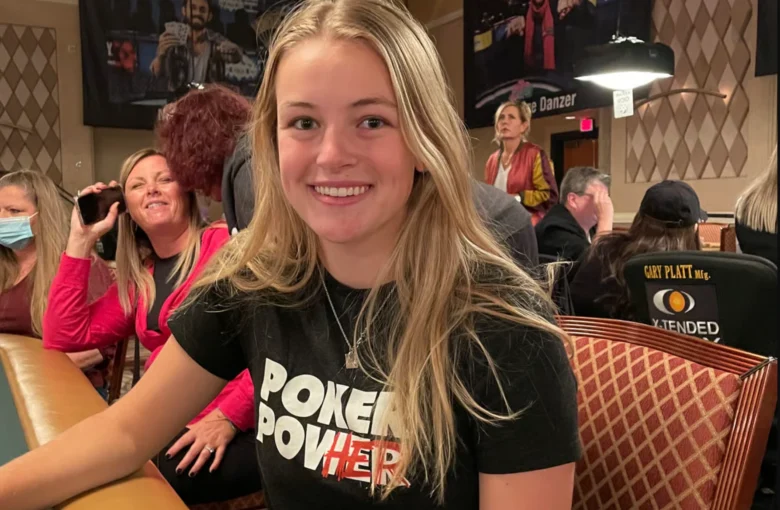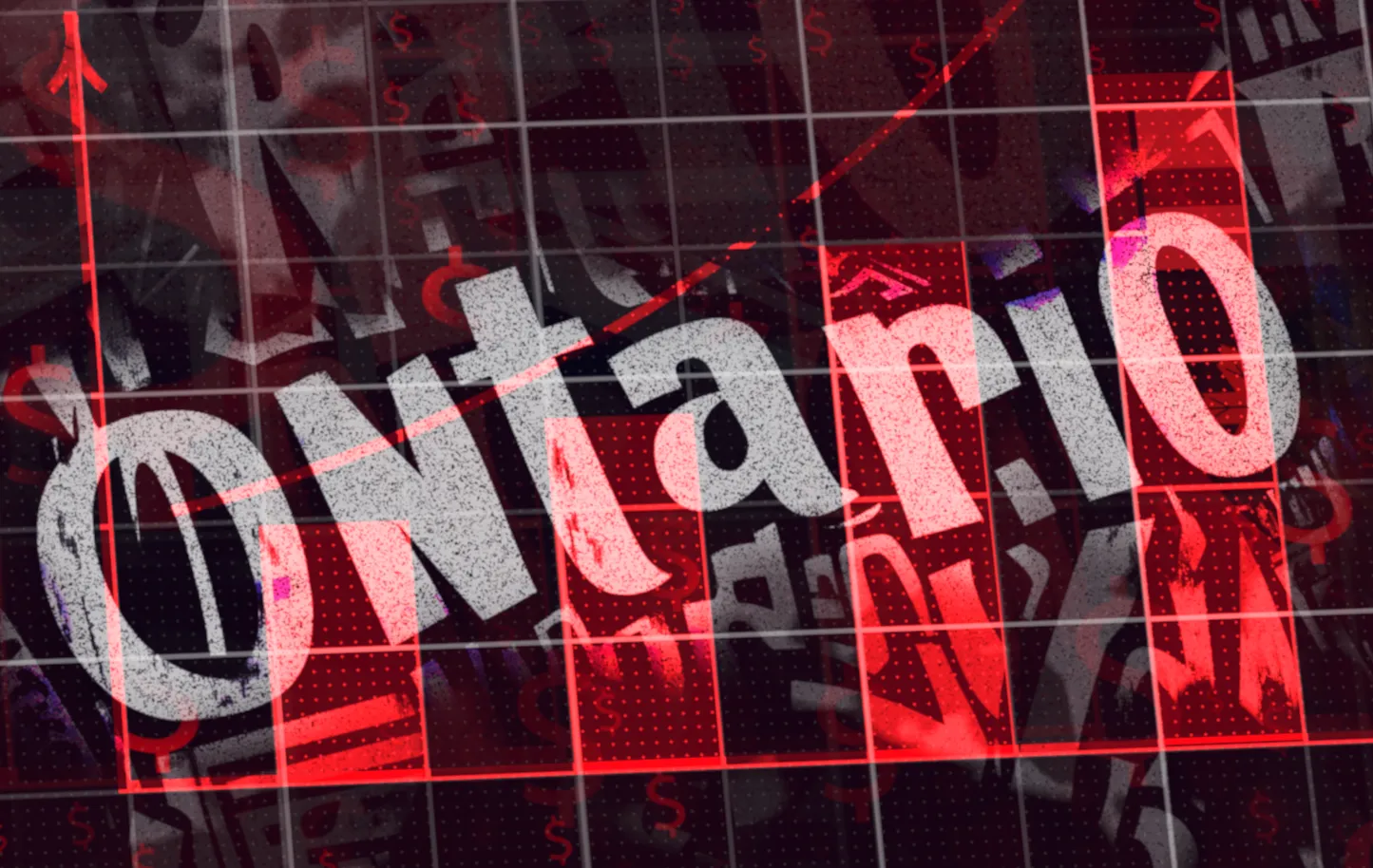OP-EP: When the Bar Is Low, Don’t Dig for Gold — WPT’s Non-Merky Branding Problem


- Fact Checked by: PokerListings
- Last updated on: November 24, 2025 · 8 minutes to read
This is a story about what happens when powerful global poker companies treat women not as players, customers, or community members, but as commodities. It’s about companies whose marketing missteps aren’t just tone-deaf — they expose a deeper rot in how women are framed, talked about, and used for engagement. And it’s about how, when a young woman dared to call this out, these global companies’ own ambassadors and marketing manager didn’t defend her or reflect on their own missteps. Instead, they intentionally and systematically helped drag her down to drive their bottom line up.
The Twerking Video and the Poker Community’s Initial Reaction
The online poker world has been busy arguing about a lot of things this past week. One of those arguments was about a video of an unidentified woman twerking on a poker table. How little we actually know about her and how little people actually seem to care about her should tell us something about this discourse in general.
The video was originally posted by Sashimi who stated “American poker is like this.”
アメリカのポーカーはこんな感じ pic.twitter.com/a1TLemU5mc
— さし美🐟Sashimi (@sashimipoker) November 19, 2025
It was then retweeted by ClubWPTGold, with a message dunking on their customer base with a message: “GTO players took this from us.”
GTO players took this from uspic.twitter.com/MB2tbzT7Yy
— ClubWPT Gold (@ClubWPTGold) November 19, 2025
Let me be crystal clear about something:
The twerking video of a woman expressing herself with friends at a private event is not the problem. The original content creator (videographer) is not the problem, unless the video was recorded and/or disseminated without the participants’ consent. Even ClubWPTGold retweeting it didn’t concern me at first, as I was unaware of their predatory commodification problem.
As I’ve already said , I have been and sometimes still am the woman in that video: having fun with friends, splashing chips, being the chaotic good energy at the table. This is not about women behaving “badly,” or standards of propriety, or the moral purity of poker players. We’re all humans, and humans are complex. Most of us have done things we later judged others for. That’s life.
The real issue is what came next.
The Real Issue: Brand-Level Negligence
When players (not just women) expressed concern about what this kind of content signals about the current state and future of poker, the response from the WPT ecosystem was not a thoughtful reflection. It was not curiosity. It was not even a basic acknowledgment that the industry has a long, documented history of alienating women and then wondering while why recruitment efforts fail.
Instead, we got:
Don’t worry, we will return to clips of girls twerking.
A sly wink.
A distasteful joke.
A punchline at the expense of the very people raising valid concerns.
This is not leadership. It’s brand-level negligence.
When the bar is on the floor, WPT seems determined to dig deeper (and not withing themselves) to strike at content gold, making the poker world look like a non-consensual, dirty, and unwelcoming place.
Infantilizing Women and the Missed Opportunity
Reducing adult women having fun to “girls twerking” isn’t just sexist, it’s infantilizing. It sends a clear message about who the WPT sees as valuable, marketable, and worth listening to. It wasn’t just a misstep; it was an intentional framing choice. And when people with microphones, platforms, and influence not only shrug off concerns from women by recasting them as overreactions but also financially capitalize on sexist click-bait reactions, the community suffers.
Poker is already fighting an uphill battle to become more inclusive. Women comprise roughly 5% of live tournament fields. From my understanding, the conversation about how to bring more women into the game has been ongoing for years. And WPT, a major institution with enormous influence, had an opportunity this week to take that conversation seriously.
Instead they dirty deleted yet another juvenile meme of theirs (it truly is unclear what their PR message was on that one) when I called them out.
.@WPT, I don't want to be intrusive, but did you dirty delete your tweet because @ClubWPTGold took care of you when you should be helping bring more women to the game, were you afraid of being ratioed, or both?
— Sara O'Connor (@SaraSmartist) November 23, 2025
I'm still just saying 🤷♀️💅 pic.twitter.com/v7ZsqIPFcI
Its affiliate accounts and high-profile ambassadors chose to trivialize what was going on in our community by turning concerns into engagement farming, telling folks to, for example, “Twerk your way over to @ClubWPTGold and sign up” at the same time industry insiders tore up one of their own (Abby Merk) for sharing her valid criticism of WPT’s marketing choice.
up about our Black Friday Sale and flash freeroll giveaways starting next Friday!
— Jamie Kerstetter (@JamieKerstetter) November 21, 2025
Twerk your way over to @ClubWPTGold
and sign up with Code JAMIE 👇🏼 https://t.co/u8XVSKxsOL
This is not harmless. This is culture-setting.
The Cultural Impact
Every time an industry leader brushes off concerns from women, a message is sent:
We hear you. We just don’t care. Go twerk for us, that’s all you’re good for anyways. Oh, and don’t worry, you’ll get judged for that too, so shut up while you entertain and make us money.
Players notice. Their families who wonder why they’re not at home already on a poker night notice. People who might have considered entering poker will see this discourse and reasonably conclude that the ecosystem still panders to the lowest hormonal denominator. Male players who do care about the health and image of the game are silenced by the implication that criticism makes them uptight or humorless.
WPT brands itself as global, prestigious, and forward-thinking. It claims that:
Throughout its history, the World Poker Tour has played a pivotal role in shaping the modern poker landscape. . . . [T]he WPT remains a dynamic force in the world of competitive poker, continuing to capture the hearts and minds of enthusiasts around the globe.
But when given a choice between thoughtful leadership and cheap viral engagement, they chose the latter while punching down on Merk and fueling that fire against her.
Fun is not the enemy. Misogyny masquerading as well-thought-out marketing is.
Poker is supposed to be a place where all types of people can show up, be loud, be quiet, be brilliant, be messy, and be fully themselves. But for that to happen, the institutions controlling the megaphones can’t keep telling women, implicitly or explicitly, that they’re only valuable when silently providing entertainment.
Abby Merk and the Punishment of Speaking Up
The backlash toward content creator and player Abby Merk is a perfect example of how poker’s cultural machinery punishes women for speaking up while dodging the actual issue.
When Merk voiced a reasonable and truthful criticism (albeit strongly worded): that ClubWPTGold’s post reduced women to sexualized props for engagement farming, the response wasn’t introspection from an international brand or its ambassadors. Instead, they sharpened and passed out pitchforks to help the most vile parts of our poker community turn on her.
another unbelievably disappointing post from clubwpt gold. part of having a platform is knowing how to use it. what could possibly have been the point of this except for to get clicks by demeaning women?? “gto players took this from us” as if this is what you WANT TO SEE WOMEN… https://t.co/OPWyeZKcBP
— Abby Merk (@abbypoker_) November 21, 2025
Accusations of “hypocrisy” flew. Screenshots of her own flirtatious posts circulated like a scarlet letter, as though an individual woman’s expression of herself somehow invalidated her critique of a global corporation exploiting women for clicks. But here’s the fundamental distinction the backlash conveniently ignored by almost everyone:
There is a vast difference between an individual choosing to share sensual content of themselves and a corporation repurposing women’s bodies for marketing without compensation, context, or consent.
When an individual posts something playful, sexy, or confident, they are controlling their image. The power resides with them. They decide what’s shared, why it’s shared, and who benefits.
When a corporation uses women’s bodies, especially women who are not being paid or contracted, to drive engagement, it is no longer self-expression. It is commodification. It is a calculated business decision dressed up as “just jokes,” and it is fundamentally about extracting value from someone else’s image.

Merk’s critics knew this. Or they should have. But the ease of dogpiling on a woman online, especially a visible, confident, clever, and beautiful one, proved more enticing than engaging with her actual argument. The vitriol she received had little to do with “logic” or “consistency” and everything to do with policing women’s tone, bodies, and boundaries.
The irony is hard to ignore. Merk’s critique was directed at a brand that trivialized and keep trivializing women into sex objects for promotion. The community’s loudest response? To mock, deride, and sexualize her harder while dodging the systemic issue she raised. What a cruel angle shot.
The community’s reaction wasn’t a conversation about hypocrisy. It was a punishment against a woman for stepping out of line.
And it perfectly illustrates why so many women stay quiet, leave, or never join poker in the first place and don’t want their current or prospective partners to be involved either. If the “gold standard” response to criticism in our community is to attack a vivacious young woman making it, the culture isn’t just failing, it’s calcifying.
The Path Forward
Poker doesn’t need another lesson in how ruthless the online ecosystem can be toward women. It needs leadership with the courage to rise above it. Instead, WPT and ClubWPTGold dug deeper into the backlash and into the worst instincts of the community rather than its best.
If WPT wants a future where more customers irrespective of gender play and thrive, the answer isn’t:
- Deleting juvenile tweets.
- Hiding behind irony.
- Mocking the player base for expressing discomfort.
The answer is to:
- Listen and adjust.
- Uplift the poker community in a welcoming, safe environment.
- Treat poker as more than a chance to capitalize on shock content.
Frankly, WPT risks confusing “striking gold” with stunting growth at best. The future is what we make it, with words, actions, and pocketbooks. When a brand tells you who they are, listen. Be kind, run good, and decide whether that brand is a fun time or a demeaning one to be left behind and alone.



-
CoinPoker4.1
- 33% Weekly
- 150% up to 2000$
T&Cs Apply | Play Responsibly | GambleAware
+18 / T & C apply / Play responsible
-
Stake.US Poker4.3
- Rakeback 5%
- $55 Stake Cash + 260K Gold Coins
T&Cs Apply | Play Responsibly | GambleAware
18+ | Play Responsibly | T&C Apply
-
Appeak Poker4.1
- 1,000 Chips Daily
- FREE 5,000 Chips
T&Cs Apply | Play Responsibly | GambleAware
T&Cs Apply | Play Responsibly | GambleAware
-
- 2,500 Gold Coins + 0.50 Sweeps Coins
T&Cs Apply | Play Responsibly | GambleAware
18+ | Play Responsibly | T&C Apply
-
WSOP.com4.3
- Up to 70%
- 100% up to $1000
T&Cs Apply | Play Responsibly | GambleAware
T&Cs Apply | Play Responsibly | GambleAware





